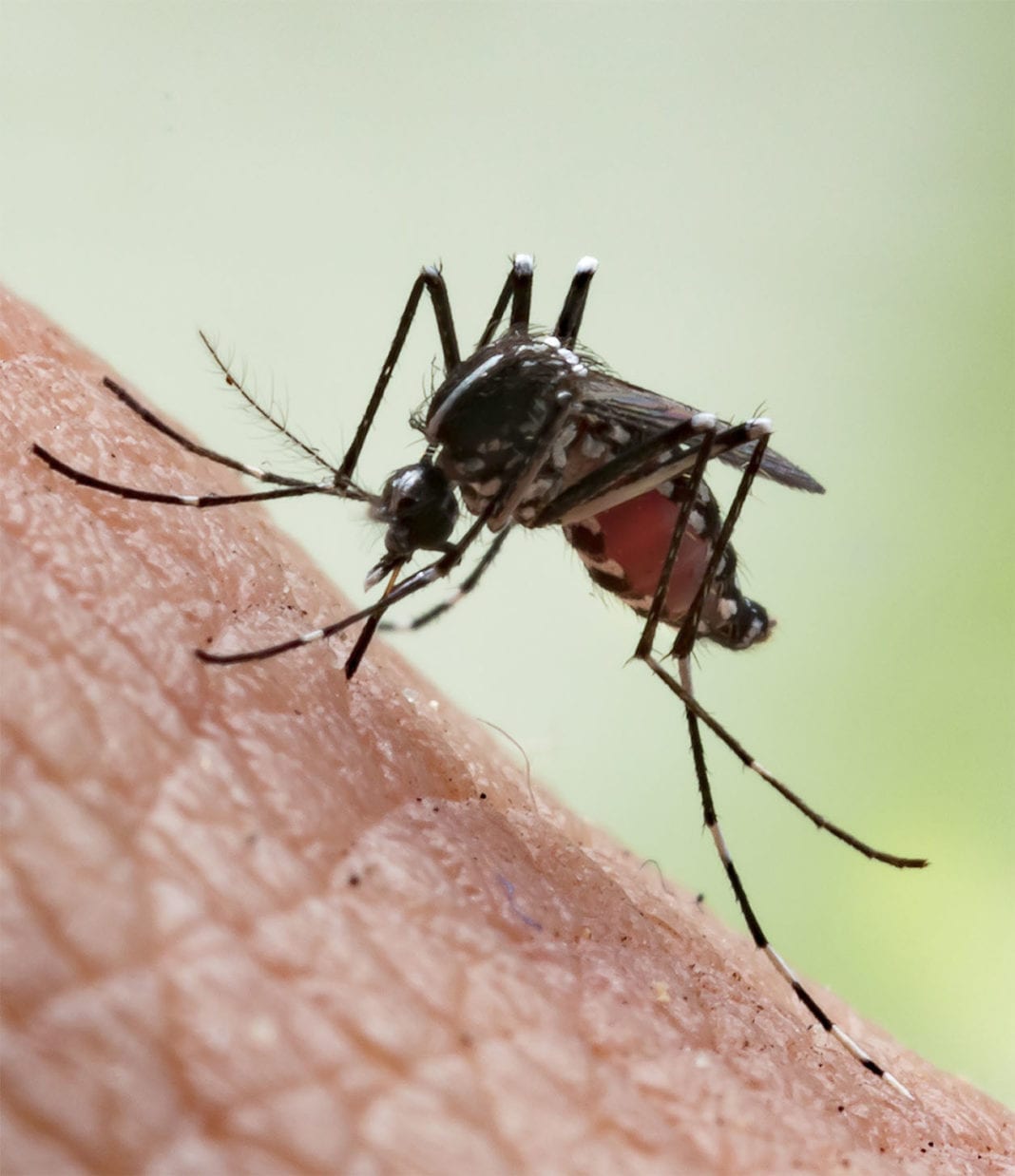An increase in the prevalence of bugs during the spring and summer is a reality in Oklahoma. While encounters with insects and arachnids are usually harmless, one sting or bite can bring pain or long-term health problems to some.
Wasps, bees, mosquitoes, spiders and ticks are the most common bugs Oklahomans encounter. The mosquito is perhaps the most irritating of all … and the most likely to transmit disease. State and municipal governments trap and test mosquitoes to see what diseases they may carry, says Scott Meador, the vector control programming coordinator for the Tulsa Health Department.
He says mosquitoes emerge in mid-spring and “can carry West Nile virus – that is our main vector with them right now as far as mosquito-borne disease. Zika has diminished in threat as far as this area, so that’s not something the [Centers for Disease Control and Prevention] focus on a lot in our area of the country.”
West Nile is the No. 1 cause of mosquito-borne disease in North America, according to the CDC. It can cause fever, body aches and a stiff neck, among other symptoms. About one in every 150 infected people develop serious complications.
Meador says mosquito season in Oklahoma fades in October, but the threat of ticks can last longer. Many ticks carry Lyme disease, an illness that can have lifelong health consequences, including loss of mobility, weakness and Rocky Mountain spotted fever, which can be deadly if not treated quickly.
“Lyme disease is here in Oklahoma and also Rocky Mountain spotted fever, both of which can be treated with antibiotics,” he says. “Ticks can [also] carry alpha-gal syndrome, which is essentially a situation where you develop [an allergy] to all red meat. That really gets people’s attention. Because of what they can carry, there is a lot of research around ticks right now.”
Meador says wasps and bee stings can cause people with pre-existing allergies to have potentially life threatening reactions, but these insects don’t typically carry diseases. If you believe you have been bitten by a tick or mosquito and show symptoms like a fever, it’s important to contact a physician immediately, he says.
Avoiding contact with insects that can pose health questions is a good way to ensure you don’t get sick while you’re outdoors.
“Prevention is always the key, and there are steps you can take to make sure you don’t get stung or bitten by an insect that might make you sick,” says Tom Creider, program manager for Oklahoma State Parks. “An insect repellent with at least 25% DEET is a good bet for mosquitoes [and] is effective if you use it right – and be sure to put some more on after a period of time when it starts to wear off.”
Ticks are especially prevalent in heavily wooded areas.
“Always check yourself for ticks when you’re hiking or spending a lot of time outdoors where you might come into contact with them,” Creider says.


























